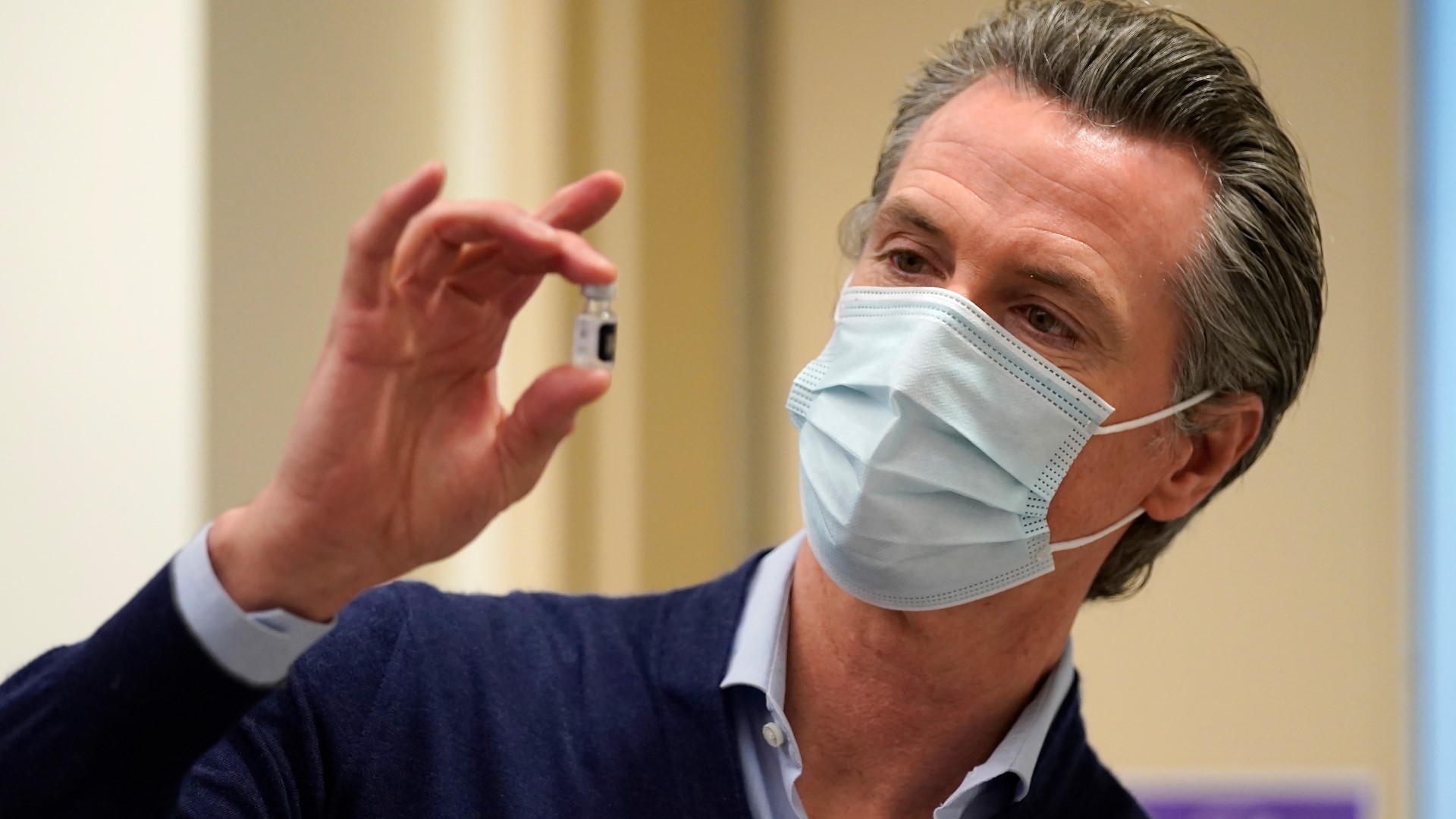SACRAMENTO, Calif — Yet another COVID-19 vaccine trial is now underway at UC Davis Health.
The National Institutes of Health (NIH), Novavax, and UC Davis Health launched the Phase 3 clinical trial earlier this week, according to principal investigator Dr. Stuart Cohen. He said they will enroll 200 to 300 participants in the global study which aims to include 30,000 people. Cohen said the first doses will be administered Monday, Jan. 4, 2021.
Here's everything you need to know about the trial:
Who can participate in the trial?
Dr. Cohen said the main criteria is that participants be over the age of 18 and willing to participate. They also couldn't have taken part in another COVID-19 trial. He said people with pre-existing conditions may be in the study but pregnant women, those who are immunocompromised, and those going through chemotherapy are excluded. HIV patients with CD4 counts above 200 can participate in the clinical trial.
"The goal of the entire coronavirus vaccine program is to get everyone in the country vaccinated, so we don't want to put people who are high risk in clinical trials before we know something about safety,"
What kind of recruitment efforts is UC Davis Health doing to ensure diversity in the clinical trial?
Dr. Cohen said they're going to build on outreach efforts from the previous Pfizer vaccination trial conducted at UCDH. He said the Center for Diversity at the School of Medicine has been helping recruit Asian, Black Latino, and Native American candidates.
"One of the goals of this trial is to try to bring in people who are typically not highly represented in vaccine or any other clinical trial. So, we're looking to bring in members of the African American community, Latino community, and Asian/Pacific Islander community, particularly given the demographics in Sacramento where those populations are disproportionately affected by COVID. We want to make sure the vaccine works in those communities," Dr. Cohen said.
How is this vaccine different from Pfizer's and Moderna's?
Dr. Cohen described the Novavax vaccine as a subunit vaccine. He said the Hepatitis B and Shingrix shingles vaccines also fall under that category. UCDH explained in a press release:
"The Novavax vaccine, called NVX-CoV2373, has a subunit from the spike protein in SARS-CoV-2, the virus that causes COVID-19. The spike protein is the main target for development of immunity. The subunit is combined with an adjuvant, a boosting agent to improve the body’s immune response to the vaccine. When this combination enters the body, it triggers an immune response to the spike protein and creates antibodies to fight it."
Dr. Cohen said the Novavax vaccine contains protein antigens that cannot replicate or cause COVID-19. The antibodies generated by the vaccine will help protect the body from the real, fully-potent virus.
Why are vaccines important in the fight to prevent the spread of COVID-19?
"The evidence that vaccines have made the world better is irrefutable from an infectious disease perspective... Even though this has been an amazingly rapid timeline, it's not been rushed or moved inappropriately. The idea that a vaccine is over 90% effective is better than almost every other vaccine we have. These are highly effective vaccines. Do we know everything about them? Do we know how long the immunity lasts? We don't because we haven't followed people long enough. Do we know if there's any downstream, long-term complications? We don't know that either because we haven't followed people that long. But we know that with most vaccines that if people are going to have a problem, they're going to have it early. They're going to have it around the time they get injected. The expectation that there's going to be something two years from now is likely not to be the case," Dr. Cohen said.

















